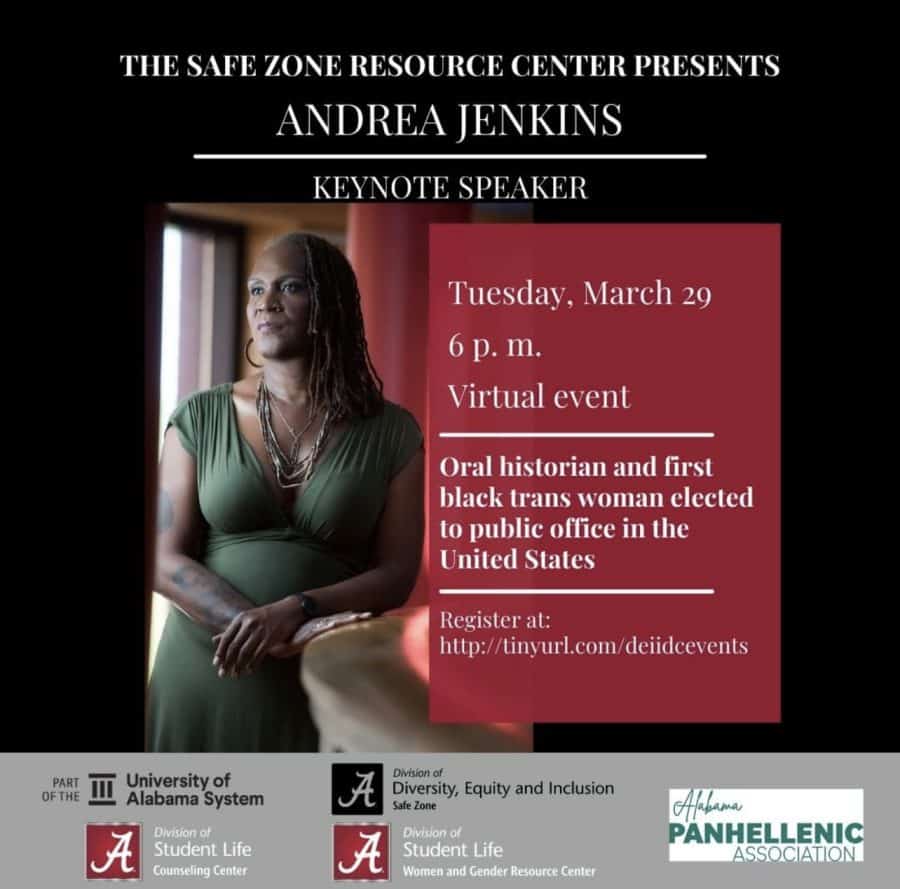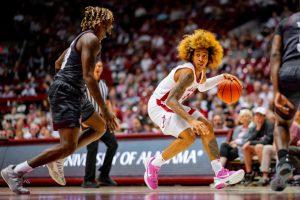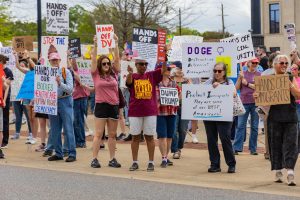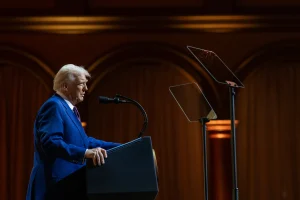Tretter Transgender Oral History Project: Andrea Jenkins joins UA for night of visibility
April 3, 2022
Correction on April 6: Jenkins was the oral historian until her election to the Minneapolis City Council.
The University of Alabama’s Safe Zone Resource Center hosted Andrea Jenkins, an oral historian and the first Black transgender woman elected to a public office in the United States, as its final keynote speaker during Women’s History Month.
During the virtual event, Jenkins spoke about her transgender oral history project and hosted a question and answer session.
Jenkins currently serves as the president of the Minneapolis City Council, where she is using her platform to increase the visibility of transgender and nonconforming people.
“I ran my campaign on three words: leadership, access and equity,” Jenkins said. “I really just wanted to build a national platform to talk about transgender issues in public.”
Before being elected to the Minneapolis City Council, Jenkins was the oral historian for the Tretter Transgender Oral History project at the University of Minnesota Libraries, which documents the lives and experiences of transgender and gender-nonconforming people in the Upper Midwest.
As stated by the University of Minnesota libraries, the goal of this project is to fill the gaps in history and empower the Upper Midwest transgender community.
Jenkins spoke on a wide variety of topics, including her personal experience as a transgender woman living in the United States, racial inequalities and the significance of her transgender oral history project.
Besides being a public official, Jenkins is a poet, artist and the author of the poetry collection “The T Is Not Silent: New and Selected Poems.”
She opened the event by reading from “The T Is Not Silent,” nodding to the visibility of the transgender community by wearing the color purple. In one line, she expressed that purple is worn because those in the community deserve to wear a “royal crown.”
Jenkins ended the poem by singing an adapted line from Elton John’s “Your Song”: “How wonderful life is now that queer folks are in the world.”
Phase one of the Tretter Transgender Oral History Project was funded for three years by Tawani Foundation, the University of Minnesota Libraries, Headwaters Foundation for Justice and community donors.
Jenkins said the group’s main goal for the oral history project was to document transgender histories for journalists and researchers who may not normally have access to the community.
Over the three years it took to complete Phase 1 of the project, from 2015 to 2018, Jenkins conducted 198 interviews. Participants talked about different stages of their lives, from coming out at early ages, to life in the workplace as a transgender person, to interactions with law enforcement.
On the website, the transcripts of the interviews are separated into three parts: video, audio and verbatim.
“What stood out to me the most in the interviews was that everybody was so happy that they came out,” Jenkins said. “Almost every person, even in the face of losing children, income, homelessness, had a joy in their decision to come out.”
“Sharing oral histories is so very important,” said Lizzie Smith, head of the Safe Zone Resource Center. “For a lot of folks, it is a very daunting thing to do, but it is something vital in getting those stories out in a safe place.”
Jenkins said sharing the stories is a way to advocate for social change.
“This work is necessary to end the violence in our community from the federal government down to school boards,” she said. “We are currently getting attacked by legislation and legislators who are trying to make transgender and nonconforming lives illegal. These stories hopefully will create some awareness and ultimately, love.”
Jenkins said the only way to make things better is to center life on love.
“It can be a hard thing to do, especially right now in the United States,” she said. “But we have to think about the joys that are present in this community and all the amazing accomplishments and achievements that so many transgender and noncoforming people are making.”
Questions? Email the culture desk at culture@thecrimsonwhite.com.





















